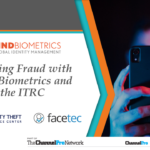IoT platforms specialist IVeda has announced the launch of the second generation of its IvedaMobile app.

Using the camera on a mobile device, the IvedaMobile app can transform it into an extension of an existing video surveillance system. The app enables the camera to become integrated with IvedaAI and allows it to search images for faces or license plate numbers wherever a system’s own cameras are not available to do so.
In a press release announcing the launch of the app, Iveda highlighted the fact that its new app is “ideal for emergency use applications to augment existing security cameras” as it allows users to stream live video in a matter of seconds due to the fact that it doesn’t require complicated setup or teardown procedures in order to function.
The app uses IvedaAI’s facial recognition capabilities to detect faces in real-time, and can provide systems managers with instant alerts if and when a face is matched to one from an existing database.
“Iveda is leveraging the growth of smartphone use and the market acceptance of video streaming with our IvedaMobile,” said David Ly, CEO of Iveda. “With a simple tap on the IvedaMobile app, officers and other first responders can stream any ongoing incident to dispatchers and commanders on the IvedaAI dashboard, while enabling real-time search for any known suspect or vehicle within the active situation.”
Iveda’s LPR (“License Plate Recognition”) can be used by law enforcement and security agencies for a wide range of uses including as a crime deterrent, or even for parking verification.
Facial recognition technology has been growing at a rapid pace in recent years, with 2020 being no exception. However, the last several months have seen both growth and increased public scrutiny and controversy due to a number of high-profile cases involving the technology.
A January 2020 front-page story in The New York Times revealed that startup Clearview AI had been secretly scraping social media sites to build a facial recognition database, which it then sold to law enforcement agencies around the world. In the months that followed, both Clearview and police forces to which it sold its services faced an outcry from the public as well as government watchdog agencies over the privacy implications surrounding the use of the tech by cops.
–
July 13, 2021 — by Tony Bitzionis








Follow Us